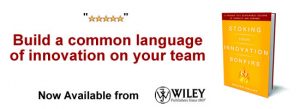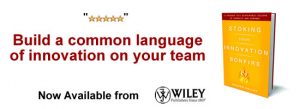Building 21st Century Skills
It Doesn’t Matter How Long They’re in School as Long as They’re Learning Skills for the Future
by Kathie Thomas
 Yesterday I wrote about the pros and cons of three-year college versus four-year college. That got me thinking about what we need to do to really teach our children to succeed in the future.
Yesterday I wrote about the pros and cons of three-year college versus four-year college. That got me thinking about what we need to do to really teach our children to succeed in the future.
As the mother of two elementary-school-aged girls (and stepmother of three young 20-somethings), I believe one of my chief responsibilities is giving them the best possible education I can, one that will teach and prepare them to excel in all stages of life. I believe they need to be taught, at a young age, how to learn and solve new problems, and that known facts can change and learning never stops.
Therefore, it doesn’t really matter how long they’re in college – for three years, like U.S. Sen. Lamar Alexander (R-Tenn) argued in Newsweek, or four. What matters to me is whether students are learning what they need to be able to cope and adjust in an ever-changing world.
Even Alexander admitted that “the average amount of time students take to complete an undergraduate degree has stretched to six years and seven months.” One possible reason for this is that brains are still developing, even into a person’s 20’s.
In fact, in a 2002 report by ACT for Youth Upstate Center of Excellence (ACT), Dr. Jay Giedd of National Institute of Mental Health said this means that students “may actually be able to control how their own brains are wired and sculpted.” And, according to ACT, a collaboration of Cornell University, University of Rochester and the New York State Center for School Safety, “kids who ‘exercise’ their brains by learning to order their thoughts, understand abstract concepts and control their impulses are laying the neural foundations that will serve them for the rest of their lives.”
So why worry about school length when their entire future is at stake?
According to “Learning for the 21st Century” in 2002, American writer and futurist Alvin Toffler once said “the illiterate of the 21st century will not be those who cannot read and write, but those who cannot learn, unlearn and relearn.”
“Learning for the 21st Century” is the first report and mile guide by the Partnership for 21st Century Skills (P21), a leading advocacy collaboration “focused on infusing 21st century skills into education,” which brings together the “business community, education leaders and policymakers… to ensure every child’s success as citizens and workers in the 21st century.”
According to the P21 Framework Definitions Document from May 2009, students should master the four following interconnected knowledge, skills and expertise in order to “succeed in work and life in the 21st century:”
- Core Subjects and 21st Century Themes: English, reading, foreign language, math, economics, science, geography, history and government AND global awareness, civic literacy, health literacy, and financial, economic, business and entrepreneurial literacy.
- Learning and Innovation Skills: Creativity and innovation, critical thinking and problem solving, and communication and collaboration.
- Information, Media and Technology Skills: Information literacy, media literacy, and information, communications and technology literacy.
- Life and Career Skills: Flexibility and adaptability, initiative and self-direction, social and cross-cultural skills, productivity and accountability, and leadership and responsibility.
To help school districts ensure that every child learns these skills, P21 provides them with self-assessments that allow them to plot where they are on the “spectrum of 21st century skills integration,” chart a course for improved integration and better implement a 21st century skills model for learning.
Additionally, P21’s Route 21 program provides educators with professional development and resources and curricula they can use to better teach 21st century skills to their students.
These are skills that are quickly becoming increasingly important today. They are essential not only to my children’s futures, but to the future of the world. But many of them weren’t even taught to 20-somethings when they were in school just a few a years ago – we didn’t know we needed to teach them. We need to make sure that our children are being taught social skills, along with compassion for diversity and self-acceptance. They need to become deep learners who are passionate about new ideas and experiences. And they need to be competitive, to be able to stand up for themselves but also be humble.
It is my hope that these skills will help them find solutions that will make our world sustainable, not just from an environmental perspective, but from a social justice perspective. But I don’t want the world to just survive, I want it to thrive. According to the Brookings Institute, education in any country has a powerful impact on safety, health and wealth. Education dramatically helps “reduce the risk of instability and lay(s) the groundwork for more stable, democratic political systems to emerge.” If all children receive primary education, “as many as 700,000 cases of HIV” could be prevented each year. And, “every one percent increase in the level of women’s education generates 0.3 percent in additional economic growth.”
We already know that we live in a rapidly changing world. It is for that reason that our children need to learn to how to change with the world. As the original “Did You Know” video taught us, students today are being trained for jobs that don’t even exist yet. And technology will have changed drastically by the time college freshmen become college seniors. It is crucial to our survival that we teach our children these skills.
Are your children learning these skills?
How are you helping them prepare for the 21st century?
 Kathie Thomas is the Director of Innovation and a senior partner at Fleishman-Hillard. The global Innovation practice group Kathie leads offers proven tools and approaches for helping organizations and teams inject a new level of innovation and productivity into their strategic planning and program development.
Kathie Thomas is the Director of Innovation and a senior partner at Fleishman-Hillard. The global Innovation practice group Kathie leads offers proven tools and approaches for helping organizations and teams inject a new level of innovation and productivity into their strategic planning and program development.
NEVER MISS ANOTHER NEWSLETTER!
LATEST BLOGS
The Evil Downside of Gift Cards
This past holiday season I saw probably one too many articles trumpeting the value of gift cards to retailers and how they are a great thing for retailers. My skeptic side starts coming out as I see article after article appear, and I have to start asking “Is the increasing prevalence of gift cards as a holiday gift (primarily Christmas) a good thing for retailers?”
Read MoreWhy the iPhone will not succeed – Yet
The new Apple iPhone is set to launch on June 29, 2007 and the press and investors are making it a darling. Investors have run Apple’s stock price up from about $85 per share before its announcement to $125 per share recently, but the iPhone still will not succeed – at least not yet.
Read More


